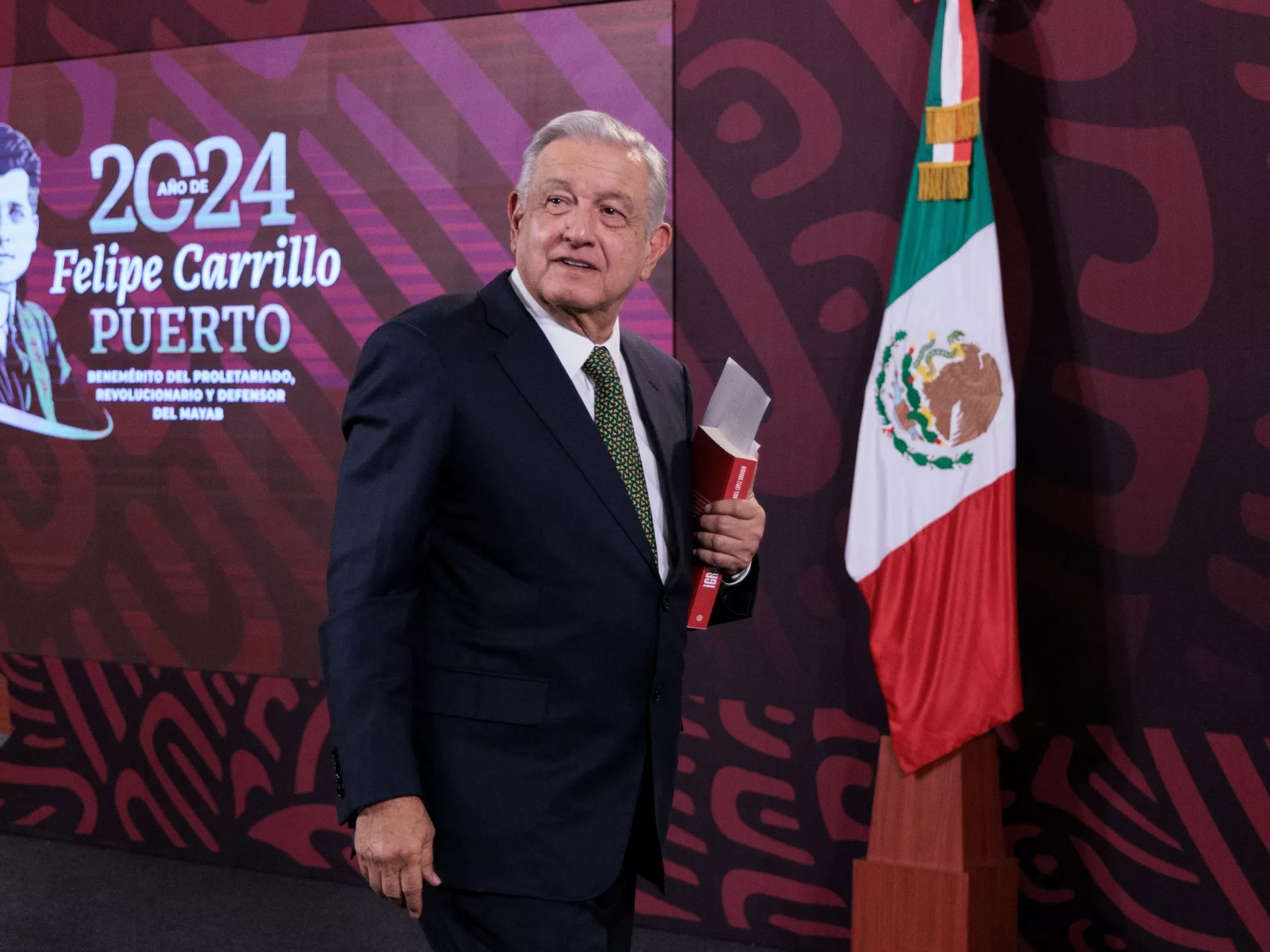In a statement on Friday, Mexico’s foreign ministry said it had offered political asylum to Jorge Glas, who has been staying in Mexico’s embassy in Quito since late last year.
The statement called on Quito to grant “safe passage” to Glas, who had twice been convicted of corruption, to leave the country.
“Once asylum is granted, the asylum state can request the departure of the asylum seeker to a foreign territory, and the territorial state [Ecuador] is obliged to immediately grant the corresponding person safe passage,” Mexico’s foreign ministry wrote.
The ministry also condemned what it described as an “increase in the presence of Ecuadorian police forces” outside of its embassy in Quito. Ecuadorean authorities have continually sought permission to enter the embassy and arrest Glas, who was sentenced to six years in prison in 2017.
The announcement has come at a moment of heightened tension for the two countries. On Thursday, Ecuador declared Mexico’s ambassador a “persona non grata”, in response to comments made by Mexican President Andres Manuel Lopez Obrador.
What did Lopez Obrador say?
The remarks that set off the diplomatic incident were aired on Wednesday, during Lopez Obrador’s daily news briefing.
Speaking to reporters, the left-leaning Mexican president implied that violence had affected the outcome of Ecuador’s recent presidential elections.
“In a very strange way, there were elections in Ecuador,” Lopez Obrador explained. He then proceeded to address the assassination of Ecuadorean presidential candidate Fernando Villavicencio in August 2023, weeks before the first round of voting.
Lopez Obrador implied that frontrunner Luisa Gonzalez ultimately lost Ecuador’s election because of Villavicencio’s murder and the media speculation it produced.
Villavicencio had been a longtime anticorruption campaigner and was a vocal critic of Gonzalez’s left-wing party, the Citizen Revolution Movement.
“A male candidate who speaks ill of the female candidate who was on top is suddenly murdered,” Lopez Obrador said, without naming either Villavicencio or Gonzalez. “And the female candidate who was at the top falls.”
In the run-off vote in October, Gonzalez narrowly lost the Ecuadorian presidency to centre-right businessman Daniel Noboa, a relative newcomer to national politics and the heir to a banana industry fortune.
What was the reaction?
The Ecuadorian foreign ministry followed Lopez Obrador’s statements on Thursday by declaring Mexico’s ambassador to Ecuador, Raquel Serur Smeke, persona non grata and telling her to leave the country “soon”.
It also acknowledged Villavicencio’s assassination, which took place outside of a political rally in Quito on August 9.
“Ecuador is still mourning this unfortunate event that caused shock in Ecuadorian society and threatens democracy, peace and security,” the ministry wrote. It also called Lopez Obrador’s statements on the matter “unfortunate”.
Supporters of the Mexican president, however, defended his remarks, saying that he was attempting to compare the situation in Ecuador to the recent violence Mexico has faced in the run-up to its June 2 elections.
Several local candidates in Mexico have already been killed, including Bertha Gisela Gaytan, a candidate representing Lopez Obrador’s Morena party in the race to be mayor of Celaya.
Critics have also pointed out that Lopez Obrador’s statements appeared to be largely critical of the media. In his Wednesday remarks, Lopez Obrador accused media companies of whipping up a “heated atmosphere” in Ecuador before the vote.
On Friday, Lopez Obrador said Mexico would not expel Ecuador’s ambassador in retaliation.
Speaking shortly before his foreign ministry made the announcement on Glas, he shrugged off the suggestion that there was any dispute between the two countries.
“For there to be a fight, there need to be two parties involved,” he said. He also called Mexico’s ambassador to Ecuador, Serur Smeke, an “exceptional person”.
Known for his outspokenness, Lopez Obrador has spurred tensions in recent years with his comments about regional politics. Last year, for instance, he provoked ire in Peru after offering asylum to impeached former President Pedro Castillo, who is currently in jail.
He also questioned the legitimacy of Castillo’s successor, current President Dina Boluarte. “So long as there isn’t democratic normalcy in Peru, we don’t want economic or trade relations with them,” he said.
Peru’s Congress responded by declaring Lopez Obrador a “persona non grata”.
